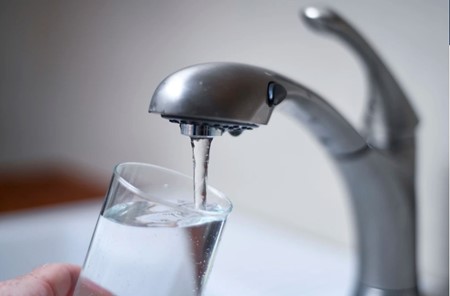
Biden Administration Sets 10-Year Deadline for Lead Pipe Replacement
President Joe Biden's administration is finalizing an aggressive overhaul of the country's lead-in-water standards, marking the most significant update in over three decades. The new Environmental Protection Agency (EPA) rule sets a 10-year deadline for U.S. cities to replace lead pipes, a move that aims to safeguard drinking water and prevent lead contamination, which poses serious health risks.
Key Aspects of the New Rule:
- Lead Pipe Replacement: The rule requires the replacement of all lead service lines, which currently deliver water to approximately 9 million homes across the U.S. It mandates that cities have a 10-year timeline to remove these pipes, starting three years from the rule's implementation.
- Stricter Standards: The rule lowers the permissible lead concentration in drinking water from 15 parts per billion (ppb) to 10 ppb. Water systems that exceed this limit will need to take immediate action, including informing the public, using water filters, and beginning the process of replacing lead pipes.
- Public Health Impact: Lead is a dangerous neurotoxin that can cause cognitive impairment, developmental delays in children, and increased risk of heart disease in adults. The new standard is expected to prevent 900,000 cases of low birth weight and avoid up to 1,500 premature deaths from heart disease each year.
- Federal Funding: The Biden administration has set aside $15 billion from the bipartisan infrastructure law to help fund lead pipe replacement. Additionally, $2.6 billion in new funding will be made available for drinking water infrastructure, with $35 million in competitive grants for programs aimed at reducing lead exposure in water.
- Focus on Vulnerable Communities: Cities like Chicago, Detroit, Milwaukee, and Cleveland, which have high numbers of lead pipes and large low-income populations, will be prioritized. Lead contamination disproportionately affects older, urban areas, and the new rule is seen as a step towards addressing environmental justice concerns.
- Challenges Ahead: Replacing the estimated 9 million lead pipes across the U.S. will be a monumental task. The total cost is expected to far exceed the $15 billion in federal funding, and many cities face challenges in locating all their lead pipes due to outdated records. Some cities, like Milwaukee, have already begun using infrastructure funds to accelerate their lead pipe replacement efforts.
Broader Context:
The new regulation replaces a more lenient standard set by the Trump administration and reflects the Biden administration's commitment to public health and environmental safety. The decision to finalize the rule in Milwaukee, a city with one of the largest concentrations of lead pipes, also highlights its significance in the final stages of a closely contested presidential campaign.
Vice President Kamala Harris has emphasized clean drinking water as a core issue, and this rule reinforces the administration's broader environmental and public health agenda. The Biden administration is also working on new drinking water standards for "forever chemicals" like PFAS, which further adds to the commitment to improve the nation's water safety, though at a significant financial cost.
With this rule, the administration aims to tackle both immediate public health threats and the long-term safety of drinking water in communities across the country, while also addressing some of the broader challenges posed by aging infrastructure.